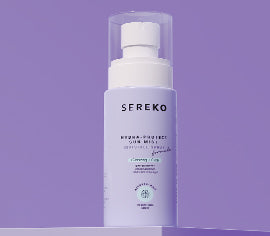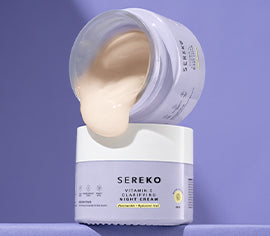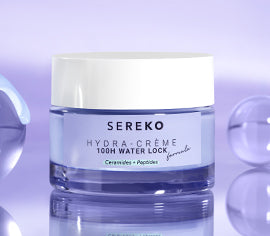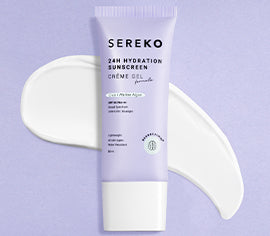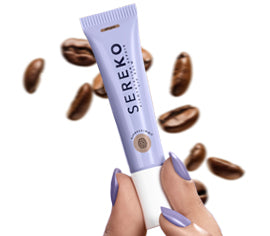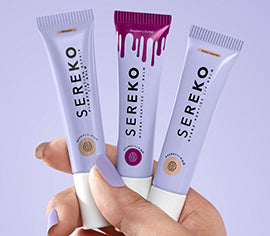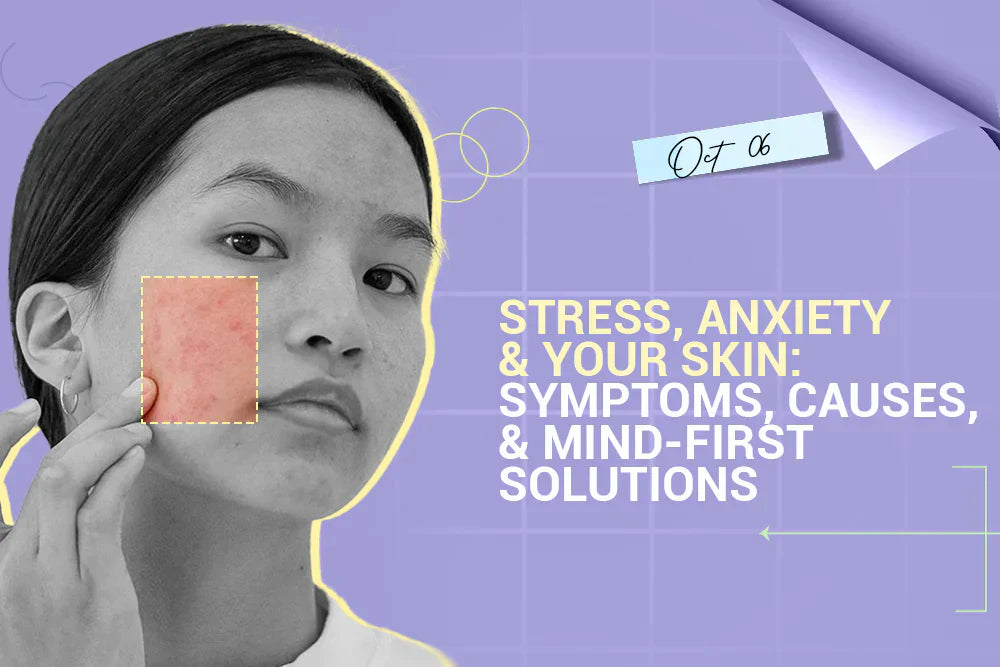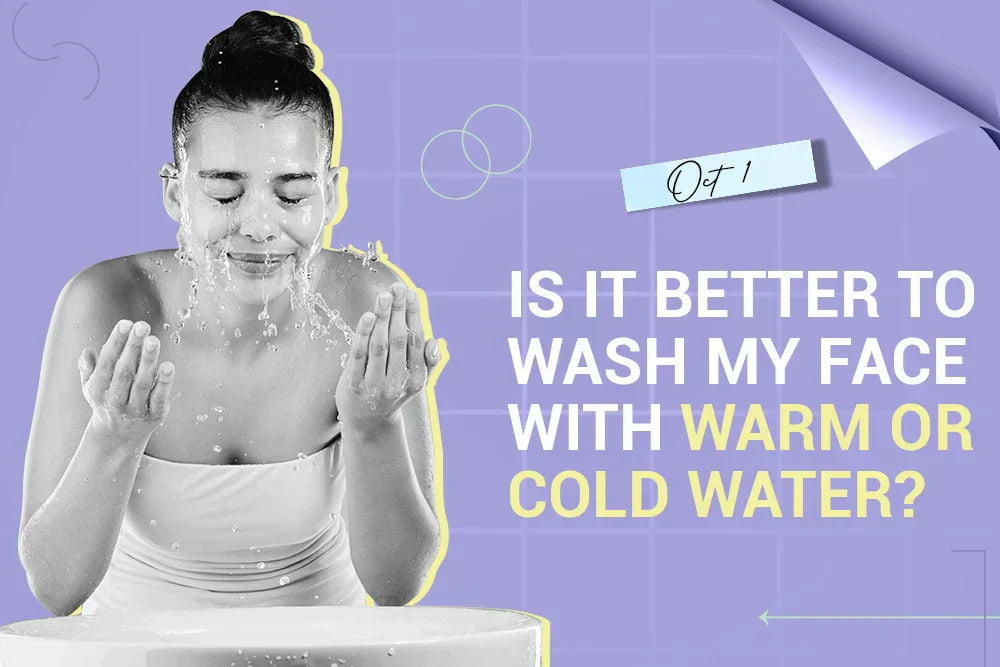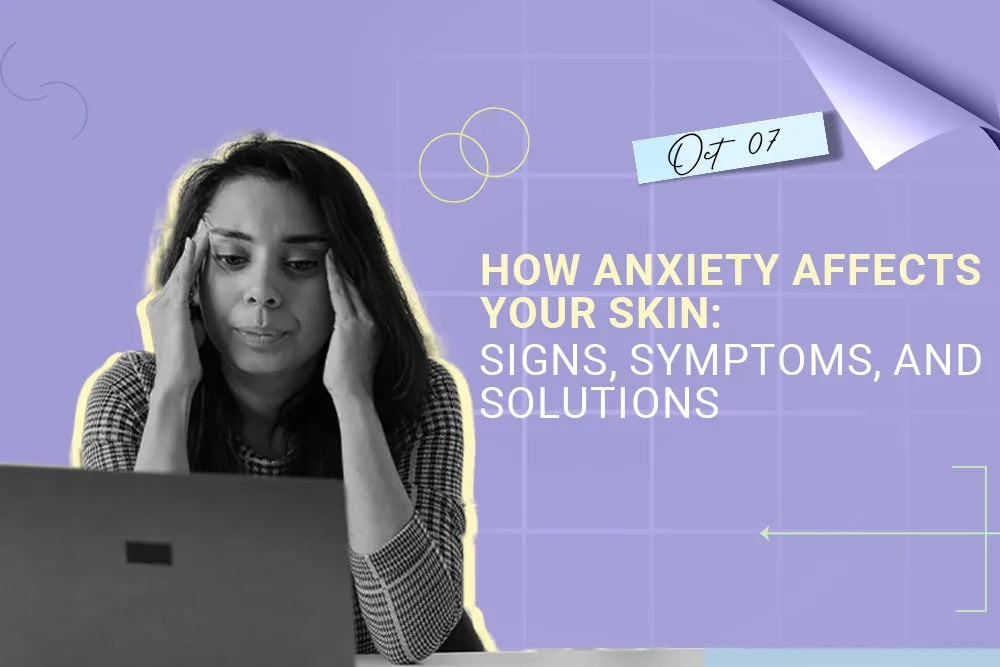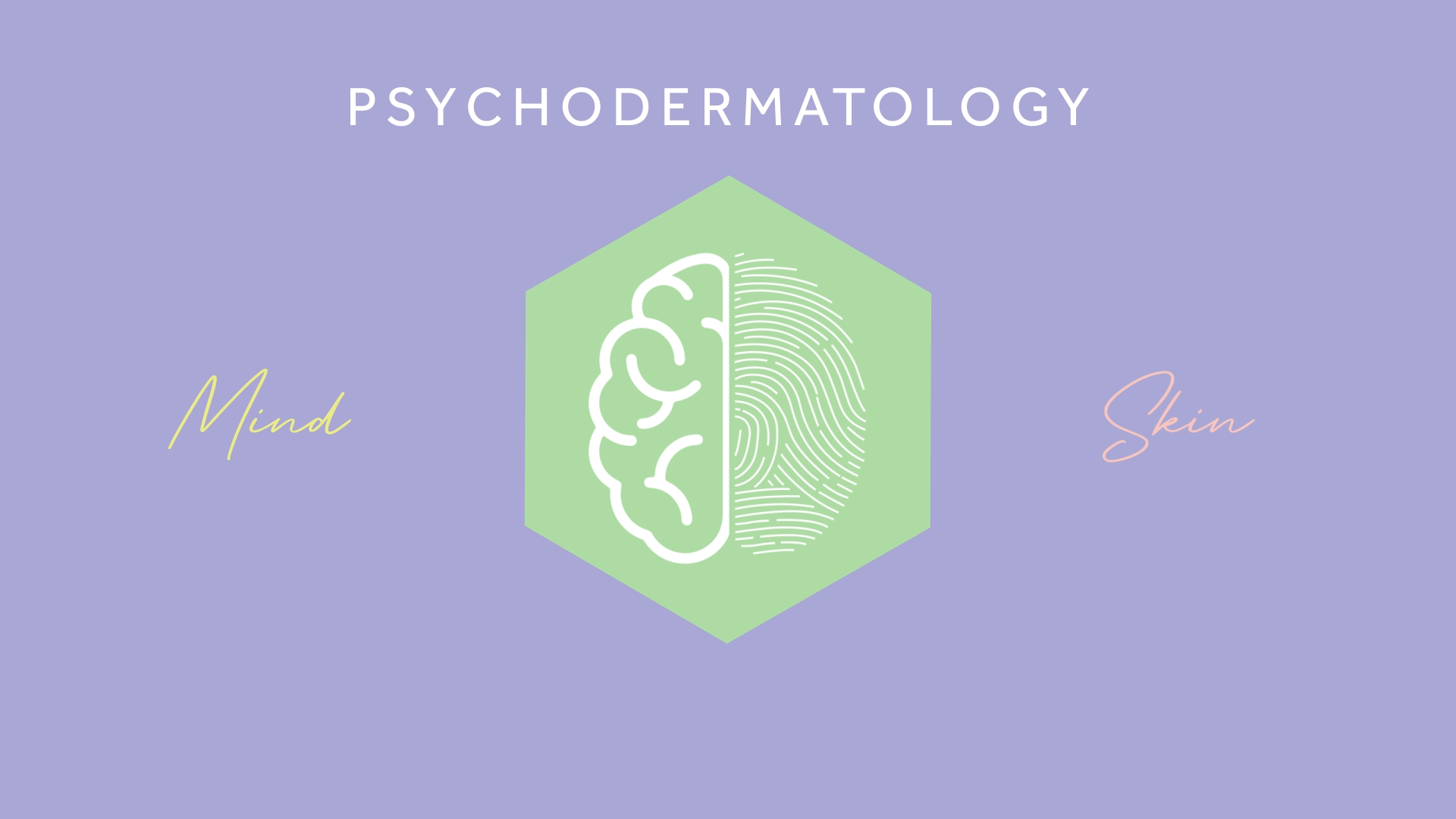Ever noticed how your skin never lies? You’re handling deadlines, juggling responsibilities, battling deadlines and your skin mirrors it all. Breakouts that weren’t there yesterday. A red, itchy patch out of nowhere. Or that unmistakable dullness that feels like your glow just clocked out early.
Stress and anxiety don’t just live in your head. They carve a path through your hormones, your sleep, even your breath — and your skin is often the first place to show the story.
The Skin Symptoms You Can’t Ignore
Your skin speaks in signals, and stress makes it shout louder:
- Pimples that arrive just when you need clear skin the most (hello, stress acne).
- Redness, rashes, or hives — often called a stress rash.
- Eczema or psoriasis flare-ups during anxious weeks.
- That fragile, dry feeling when your barrier is out of balance.
- Fine lines deepening faster than you expect, as if stress is quietly aging you.
If you’ve caught yourself wondering, “Why does my skin worsen during stressful times?” — you’re not imagining things.
Cortisol: The Hidden Saboteur
Here’s the truth: your skin and your mind share a hotline. The caller? Cortisol, your main stress hormone.
When you’re under pressure, cortisol spikes. A short burst helps you survive a deadline. But when stress lingers, cortisol becomes the uninvited guest overstaying its welcome.
Why Does Stress Cause Acne?
Cortisol signals oil glands to go into overdrive, clogging pores.
Can anxiety make your skin breakout? Yes — inflammation shoots up, making skin more sensitive and slower to heal.
Hormonal shifts matter too. Stress affects estrogen, progesterone, and testosterone levels and can wreak havoc on your skin cycle.
How cortisol affects your skin: it robs moisture, interrupts your barrier, and even increases the breakdown of collagen.
In short: cortisol doesn’t just cause stress in your body — it changes the way your skin behaves.
The Stress-Aging Connection
Let’s call it what it is: stress can age your skin faster.
Those fine lines sneaking in, the plumpness fading, the dullness that no highlighter will help — these aren’t mere cosmetic flukes. Cortisol affects the breakdown of collagen and elastin, the structural proteins that help keep your skin plump and resilient. You add anxiety habits like frowning, jaw clenching, or sleepless nights, and, yes — stress can contribute to more premature aging.
But here’s the twist: just as skin mirrors stress, it also mirrors calm.
Mind-First Skincare: Reclaiming Your Glow

The skin doesn’t only need serums and creams; it needs signals of safety. Calm hormones. Rested nights. Small rituals that tell your nervous system: you’re safe now.
1. Rituals That Lower the Volume
Stress can’t always be avoided, but it can be softened. Breathing exercises, mindful walks, journaling, even putting your phone down two hours before bed — these aren’t luxuries. They’re medicine for your cortisol levels, and by extension, for your skin.
2. Quenching a Thirsty Barrier
When stress depletes your skin’s moisture reserves, hydration becomes non-negotiable. The Hydra-Crème 100H Water-Lock Formula
does more than moisturize — it locks in water for days, repairing the skin barrier so stress can’t strip it bare. Think of it as the safety net your skin quietly prays for.
3. Calm in Your Pocket
There’s no pause button on life. But there can be one for your body’s stress response. The Calming Gel Pen
is a discreet, soothing ritual you carry with you. Use it before a big meeting, after a tense conversation, or when anxiety starts to tingle under your skin. It’s like whispering to your nervous system: “we’ve got this.”
4. Sleep is Skincare
The most underrated anti-aging treatment? Eight hours of rest. Anxiety disrupts this, and your skin pays the price — with puffiness, dark circles, and slower healing. Protect your nights like you protect your skin.
5. Feed Calm, Not Chaos
Your plate can become your ally. Antioxidant-rich foods, omega-3s, and leafy greens cool inflammation from within, while movement — yoga, stretching, or a walk under trees — clears cortisol from your system.
The Takeaway: Skin is a Reflection of State
Stress and anxiety leave fingerprints on the skin — in breakouts, rashes, dryness, and yes, even in premature aging. But the flip side is powerful: when you build calm into your daily rhythm, your skin reflects that too.
So, next time your skin acts up in the middle of a stressful season, pause before blaming your products. Ask your body what it needs. A deeper breath? More water? Better sleep? Or maybe just a ritual that reminds you that calm is possible.
Because skin care isn’t just topical. It’s mental. And when you bring both together — with mind-first rituals and supportive formulas like the Hydra-Crème 100H Water-Lock Formula and the Calming Gel Pen — you create more than healthy skin. You create skin that feels like it’s finally breathing with you, not against you.


